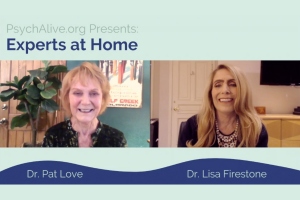Why Are We Hooked on Rejection?

You don’t need to be a psychologist to note the very harsh effects of a breakup on a person’s mental health. When a relationship ends, humiliation, rage, loneliness, anguish and grief all seem to simultaneously show up at the door, marching in arm-in-arm to parade noisily around our psyche. Evicting these emotions is a matter of healing, reconciling, finding peace within ourselves and somehow moving on. The road to recovery is rough, not just because we are struggling with the real loss of a person or a way of life we really loved, but because every painful rejection is fueled by two forces: the actuality of the loss itself and the army of negative, self-loathing thoughts reawakens within us.
Every hurt we experience echoes a barrage of rejections and painful events from our pasts. Throughout our lives, we are psychologically formed by our experience. We sweep along collecting the dust from the many lies, miscommunications, betrayals, criticisms and rejections we have experienced from the moment we were born: the frightening time a parent lost control, the angry look of a caretaker, the disapproval from someone we admired or abandonment of a loved one. All of these old and familiar experiences have shaped the way we see ourselves and the world around us.
As adults, we tend to use painful events from our present to confirm negative attitudes from our past. The horrible things we believe about ourselves on a deep, fundamental level resurface the minute a situation like a break-up can be used to prove and support them. How often do we hear people fresh out of a relationship say things like, “He never really loved me. I will never find someone. I’m destined to be alone. Who would choose me?” How can the dismissal of one person cause such a spiral of universal self-shame? Why can’t we shake that sinking feeling of humiliation and unworthiness the moment someone decides they don’t want to be with us romantically?
My father, psychologist and author Robert Firestone, recently commented, “It’s amazing how people will suck the marrow out of rejection.” While most of us like to think that all we want is true love, the reality is, many of us are addicted to rejection. Rejection validates the negative point of view of what my father calls a “critical inner voice.” This “voice” represents an internal enemy shaped out of negative events that took place early in life. While the commentary of this critical inner voice might not be pleasant, it is familiar, and unless we challenge it, we carry it stubbornly with us into adulthood.
This explains why, in a break-up, instead of just feeling the sadness of losing someone important to us, we are so often determined to turn the rejection against ourselves. Our critical inner voice, which may have been quieted while we were basking in the affections of someone we cared for, is now there to coldly say “I told you so.” Just as our positive sense of self is there to lift us through dark times, our inner critic is there to drag us through the mud. Which side of ourselves we choose to go with can mean the difference between living a rich and fulfilling life and holding ourselves back from true happiness every step of the way.
To get through a rejection or any painful occurrence in our life — the loss of a job, the inconsistency of a friend, the disappointment of a family member — we need to stand up to our critical inner voice. We can do this by first identifying when this voice is creeping into our thinking. When does a thought like, “I really miss him” become “I will never meet anyone like him. No one will ever love me?” To help us catch on to this cruel internal dialogue without blindly believing every word it utters, it’s helpful to think of our thoughts in the third person. Would we ever let someone talk to us the way we are shouting at ourselves? Moreover, would we ever tolerate someone speaking to a friend of ours the way our critical inner voice speaks to us?
We have to catch on the moment our anger turns against us. When your thoughts switch from, “I hate her for leaving me” to “Of course she left me. I’m nobody,” you can bet that your inner critic is now at work. The more we listen to it and indulge in its doctrines, the weaker and worse we feel. When you sense that voice seeping in, take a moment to write down your thoughts in the third person. Use “you” instead of “me” statements (i.e. “Of course she left you. You’re nobody.”) Think about what this voice sounds like to you. Is it familiar? Where could it be coming from? Then, respond to that voice with the compassion of a friend. You may write statements like, “I am not worthless. I’m a good person and a good choice. I deserve to be loved.”
The more we can identify when we are turning against ourselves rather than just feeling the pain of difficult events, the better off we will be in the long run. We can learn to cleanly separate our current feelings from the old pain and insults we carry with us. We can learn to treat rejection as a loss of a person we valued without losing a sense of our own value.
When we step out from the skewed viewpoint of our inner critic, we can map out and follow our own principles. In doing so, we build a strong and healthy sense of self that no one person can shatter. It becomes harder and harder to define ourselves through the eyes of someone else, particularly those who’ve hurt us along the way. The goal in abolishing our inner critic and establishing this sense of self is not to boost our egos or build a wall of protection that wards off outsiders or closes us off from love. It is simply to recognize and separate from past influences that have led us astray. This journey of differentiation helps us to uncover who we really are, to feel solid and worthy as ourselves, and to accept that we are lovable, and that we have been since the day we were born.
Tags: critical inner voice, Dr Lisa Firestone, fear of intimacy, intimacy problems, rejection, relationship advice, relationship problems, relationships










Your incite amazes me to say the least. I am beyond greatful for finding this website. The articles I have read have been more than spot on. I have held on and accepted this hurtful inner voice for years. Its as if i’m discovering my true self after all this time (turn 30 in a few wks), versus the person my inner voice was telling me I was. Thank you so much for sharing your priceless and even life saving knowledge.
-Ashley
It’s no light breakup when you marry at 32 and wake up 20 years later to discover that your assessment of good partnership was way off — like lightyears off. Some clues were there, and I did all I could to foster good communication and a healthy marriage. But eventually a damaging truth came to light.
And even though there are plenty good memories, with divorce after 20 years, I am grieving my ability to have children, my financial independence, the stability of having a trusted partner to be intimate with, my home, AND my full power as a woman (it’s a harsh fact in this society that women pay a higher price for getting older).
Like most, I cannot fully blame my ex-spouse, and so it is only logical to question oneself. Please don’t disregard how painful and necessary it can be to discover one’s own misgivings while grieving such huge losses. It is healing and difficult work. The doubts come in, as they must.
This was enlightening and informative..thank you kindly to both your dad and yourself for equipping us with the add of tools we require to self develop.